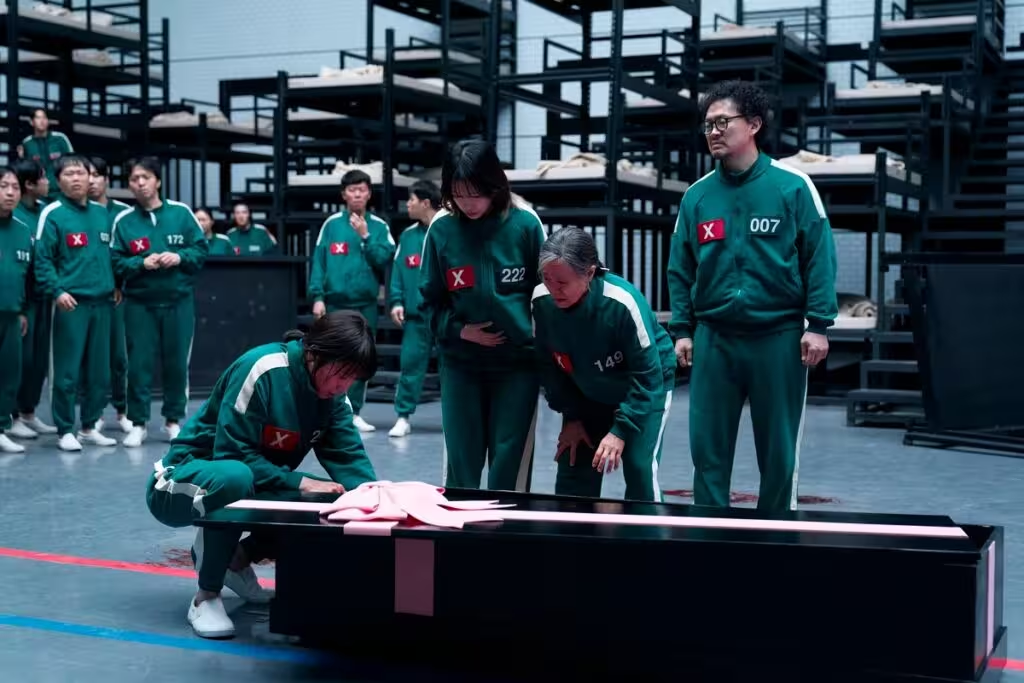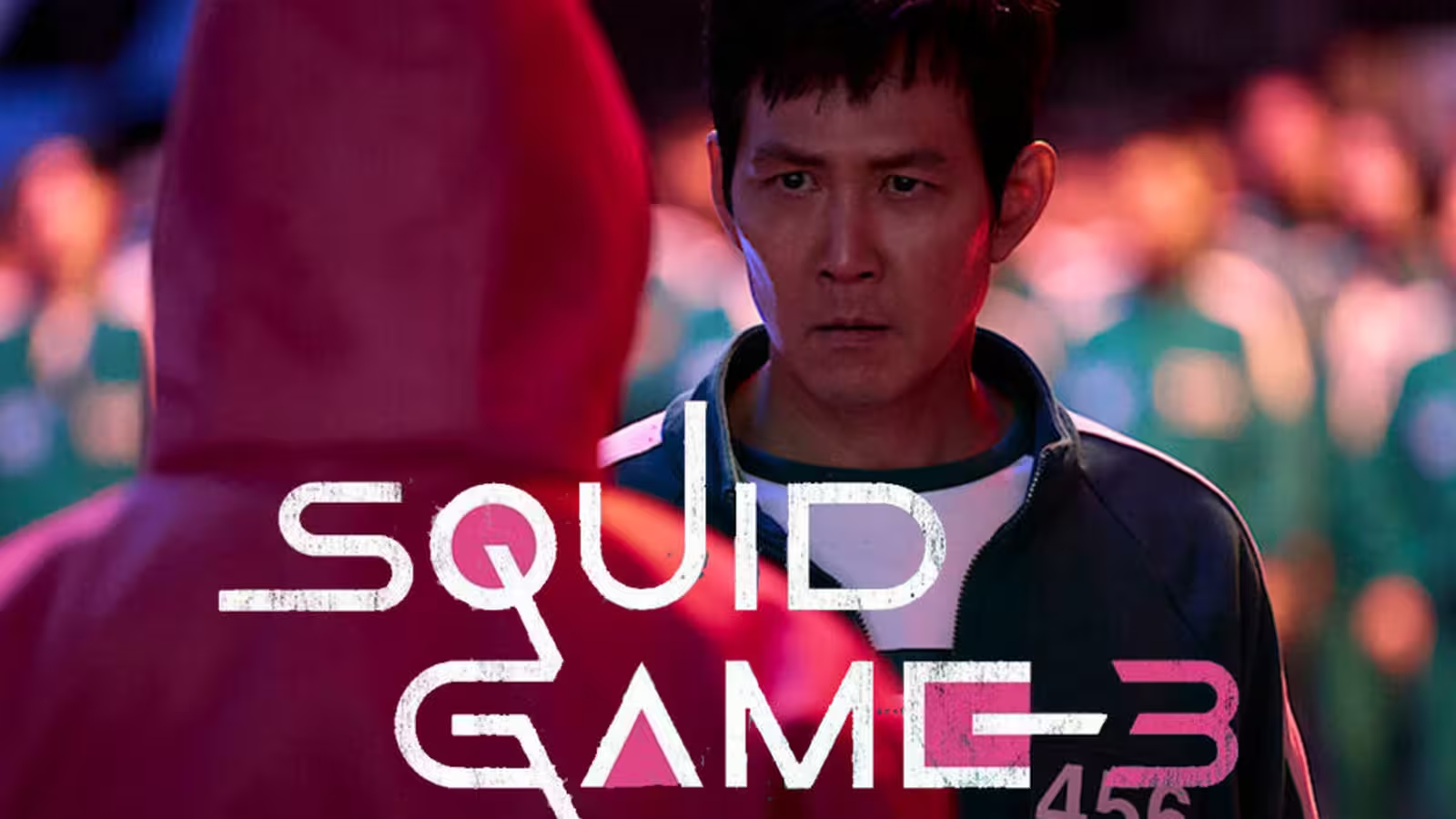8 Minutes
Few contemporary series have captured worldwide attention like Squid Game. With its third season, the South Korean phenomenon continues to mesmerize and disturb, masterfully blending nail-biting drama, layered social commentary, and visceral suspense. In this spoiler-rich review, we dive into the narrative twists, character arcs, production excellence, critical reception, and the larger societal messages behind Squid Game Season 3—a season that cements the show’s cultural legacy and dares viewers to question the price of survival.
Plot Summary: When Curiosity Becomes Carnage
From its very first episode, Squid Game Season 3 wastes no time rekindling the show's core mystery: How can a deadly contest continue to grip viewers’ insatiable curiosity after two harrowing seasons? Instead of relying on the novelty of its premise, creator Hwang Dong-hyuk doubles down on the franchise’s trademark tension and brutality, constructing new, blood-soaked games and impossible moral dilemmas.
This season picks up right where the last left off. Gi-hun, the battered protagonist played by Lee Jung-jae, returns as a changed man—no longer the reluctant hero, but one deeply scarred by betrayal and loss. After a failed rebellion against the vicious system, he is conflicted, haunted by guilt and grappling with a suppressed rage he fears will transform him into the callous enforcers he once despised. The show explores Gi-hun’s vulnerability and humanity more deeply than ever, making his struggle chillingly relatable.
The most electrifying tension of the season emerges in Gi-hun’s complex relationship with De-ho, a once-charming ally whose cowardly decision during a pivotal moment results in catastrophic consequences. Their cat-and-mouse dynamic underscores much of the season’s emotional devastation, as forgiveness, vengeance, and anguish collide in the aftermath of failed revolt.
The Newest Game: Knife’s Edge Morality
The highlight of the season is the first deadly game—a brutal evolution that drops pretense for the rawest form of survival. Unlike the metaphor-laden games of previous seasons, this challenge strips away moral ambiguity: participants are forced into a knife fight labyrinth, red versus blue, where there are no innocent choices and humanity is reduced to its most primal core. The lesson is chilling—good intentions guarantee neither survival nor heroic endings in a system designed to crush hope.
The game’s emotional punch lands hardest with Hyun-ju, portrayed in a standout performance by Park Sung-hoon. Hyun-ju's idealistic, self-sacrificing nature blazes even as it leads him to a cruel and meaningless demise—a fate that mirrors the now iconic heartbreak of episode 6 from Season 1. It is a sobering reminder that, in Squid Game’s world, decency may inspire but rarely prospers.

Cast & Crew: Powerful Performances Fuel the Drama
Lee Jung-jae is at the peak of his powers as Gi-hun this season. His portrayal is layered, intimate, and wrenchingly real, particularly in those relentless close-ups that capture every flicker of shame, grief, and suppressed rage. As his character teeters on the edge of monstrosity and humanity, Lee grounds the performance in raw emotion, generating empathy even for Gi-hun’s darkest urges.
Supporting turns also shine: Park Sung-hoon brings Hyun-ju’s agonizing arc to life; while the expanded roles of the wealthy VIPs inject a menacing and grotesque energy into the proceedings—even if their over-the-top dialogue wobbles at times.
At the helm is creator Hwang Dong-hyuk, whose creative vision remains unflinching. His commitment to upending genre expectations and delivering gut-wrenching storytelling is apparent in every grueling scene—a hallmark that has defined Squid Game as more than mere survival fiction.
Production Details: Squid Game’s Haunting Visuals and Immersive Worldbuilding
The production values of Squid Game Season 3 are nothing short of stellar. The set design, from the labyrinthine tunnels of the opening game to the chillingly sterile chambers where fate is decided, plunges viewers into a nightmarish carnival of excess and desperation. Cinematography is at its height in the climactic final duel, where a blend of fog-shrouded artistry and claustrophobic intensity elevates the show’s signature aesthetic.
Special mention must be made of the ambitious sound design and the haunting musical score, both of which amplify the sense of dread and the emotional stakes. While some creative risks do not always hit—such as the distractingly artificial CGI for a newborn baby—Squid Game remains visually and aurally unforgettable.
Critical Reception: Acclaimed, Yet Not Unscathed
Since its release, Squid Game Season 3 has ignited passionate responses worldwide. Critics have praised its gripping narrative, uncompromising social critique, and character-driven drama. Lee Jung-jae and Park Sung-hoon, in particular, have received accolades for their captivating performances.
However, the expanded role of the VIP characters has proven divisive. While intended to sharpen the series’ critique of privilege and voyeurism, their cartoonish dialogue and at times superficial portrayal detract from the otherwise sophisticated tone. Pacing also stutters when their scenes drag on, occasionally disrupting the tension of the main games.
Still, fans and critics alike commend Hwang Dong-hyuk’s refusal to opt for easy resolutions or sanitized endings. Squid Game continues to demand that viewers confront uncomfortable truths about human nature, power, and the moral costs of survival in an indifferent world.

Personal Opinion: A Darkly Relevant Masterwork
As a connoisseur of global cinema and social satires, it’s impossible not to be enthralled by Squid Game’s third season. The show fearlessly interrogates the structures that pit humans against each other for profit and spectacle. In Season 3’s final act, a fateful duel between Gi-hun and the formidable Myung-gi—an ethically ambiguous symbol of new crypto-powered capitalism—underscores the series’ thesis: In systems built on ruthless competition, even loyalty, love, and decency can wield only fleeting power.
Hwang’s decision to forsake a neat, comforting finale is commendable. Instead, the finale is devastatingly poignant: Gi-hun’s death is not an end but a catalyst for new, fragile hope. The birth of Jun-hee’s baby amidst destruction symbolizes the bittersweet persistence of innocence amid chaos. Yet the message lingers: true winners are few, and losses define the human experience under crushing societal pressures.
Themes and Social Commentary: A Grim Mirror on Our World
Above all, Squid Game endures not just as entertainment, but as a wake-up call. Its global resonance lies in the clarity with which it exposes the reality that people, in the pursuit of wealth and power, become marionettes in games they did not choose—a searing metaphor for modern existence. The third season’s conclusion insists that the game is global, relentless, and inescapable. Ambition frequently triumphs over conscience, and, all too often, the pure-hearted find themselves paying the heftiest price.
Each element—the structuring of the games, the dynamics between players and observers, the haunting presence of the wealthy elite—serves a pointed allegorical purpose. Squid Game Season 3 asks: How far are we, as a society, willing to go for survival and success? Is the value of goodness inextricably tethered to tragedy?
Go Deeper: Why Squid Game Season 3 Still Matters
With masterful storytelling, complex characters, and an unflinching eye toward the darkest corners of human behavior, Season 3 of Squid Game is a triumph for fans of world cinema and thought-provoking TV. Whether you watch for the suspense or the scathing critique, you’ll find yourself contemplating its themes long after the credits roll.
In summary, Squid Game Season 3 delivers a harrowing, visually arresting, and thematically rich continuation of the series’ legacy. It is not comfort food television—but in its honesty and brutal beauty, it becomes essential viewing for all global audiences invested in the art of modern storytelling.


Leave a Comment